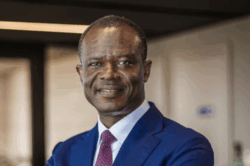The National Board for Small Scale Industries (NBSSI) will give more attention to players in the educational and arts sectors with the receipt of GH¢150million top-up funds from government for the Coronavirus Alleviation Programme (CAP) Business Support Scheme.
The Executive Director of NBSSI, Kosi Yankey-Aryeh, told the B&FT that the initial disbursement did not give enough attention to the educational and arts sectors even though they had also been greatly impacted by the outbreak of the Coronavirus; but the top-up funds, which bring the total CAP funds to GH¢750million, will provide the opportunity to offer more funding to address financial challenges in the sectors.
“We are going to provide support services to the general public, but we need to pay close attention to the tertiary universities, private schools and the arts; and those who in the handicraft sector for export and others. They have been negatively impacted and they need attention,” Mrs. Yankey-Aryeh told this paper on the sidelines of the Vodafone Business Runway Webinar Series.
She added that the move by government is worth commending, due to the needs of Micro, Small and Medium Enterprises (MSMEs). Over 60,000 people have received over GH¢57million under the Adom Micro Soft Loans for micro-enterprises.
For the regional breakdown, Mrs. Yankey-Aryeh revealed that the Ashanti Region received the most disbursement followed by Central, Eastern, Greater Accra, Western and Volta Regions. She said the process to begin disbursement of the Anidaso Special Loan will soon be completed, and applicants who requested funding of above GH¢2,000 will be served.
The technology to manage applications and the technology for disbursing the GH¢57million under the Adom Micro Soft Loans was provided by telecommunication giant Vodafone.
Its Chief Executive Officer, Patricia Obo-Nai, speaking at the webinar noted that the process has been interesting and revealing. According to her, the exercise prompted Vodafone to organise the Business Runway Webinar Series to ensure businesses which receive the financial support invest into ventures that will ensure sustainability.
“For us, it is important to look beyond COVID-19; beyond the alleviation programme money being sent to the MSMEs, and ask how are they going to survive after receiving the money. This is why we are having this discussion on how we build the requisite skills, how do we enable their businesses, how are businesses able to work through this digital new normal and empower them to do it. This is because they are not only not only competing with the local market, they are going onto the global stage,” she said.
The experiences gathered from the process, she added, expose the company to the real MSME numbers which were factored into the decision to waive Vodafone cash transfer charges on and across networks.
“Times are hard. How are businesses going to survive and what can we do to help them with this financial burden that they are carrying? Some are laying off staff, some are not; but should they continue to carry the burden of paying charges on money sent to their staff for even pay salary?
“So, we decided that enough, take that burden off; despite everything we have done on data pricing, let people feel the real money – and how better can we do that than waive all the charges? This is not a promotion. This is something that is here, and we are saying that it doesn’t have to be Vodafone to Vodafone as we have been doing; we are saying it has to be across networks.
“As long as you have the Vodafone SIM and you want to pay salary, or you want to do a transaction, do it with no charge. It is costing us money, but it goes beyond making profit. This is the time you show to businesses that you care,” Mrs. Obo-Nai intimated.










